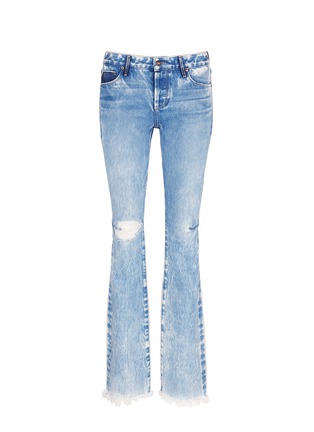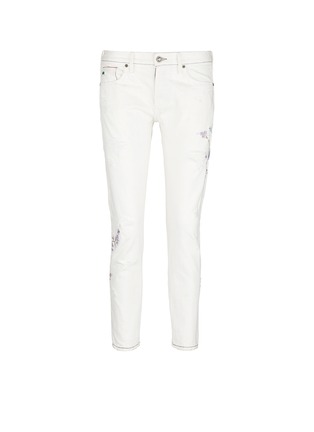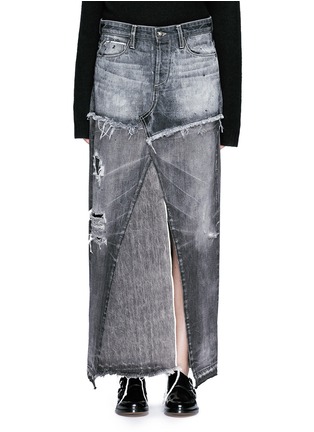We all love the feel of washed soft denim, preferably with a little bit of faded wear and tear. Yet the process of making and “ageing” denim has a hefty environmental footprint. The traditional laundering processes require gallons of water as well as harmful chemicals and the reality is that clean water is becoming a scarcer and scarcer resource. According to the United Nations, without immediate action from the fashion industry, clean water will no longer be an accessible resource by 2030 for half of the world’s population.
The reality of water scarcity prompted the co-founders of Tortoise jeans to rethink the manufacturing process. Staying true to the label’s namesake, they have developed a slower, yet more environmentally friendly approach. The brand claims that 80 % less water is required with their washing process; they use natural additives as opposed to harmful chemicals and the traditional pumice stone is avoided due to the sediment it leaves. The brand has dubbed the process “The Starfish Treatment”, and it uses dramatically lower temperatures than traditional methods with the added benefit of an 85% cut in energy consumption.
While sustainability is a complex science that involves a whole array of concerns including biodiversity, raw materials, supply chains, manufacturing, shipping and human welfare – water is a key issue in the manufacturing of materials. As the dialogue between manufacturers and consumers becomes more transparent, the multiple issues of social and environmental responsibility are not only becoming “sexy”, they are becoming a crucial part of our collective future.








